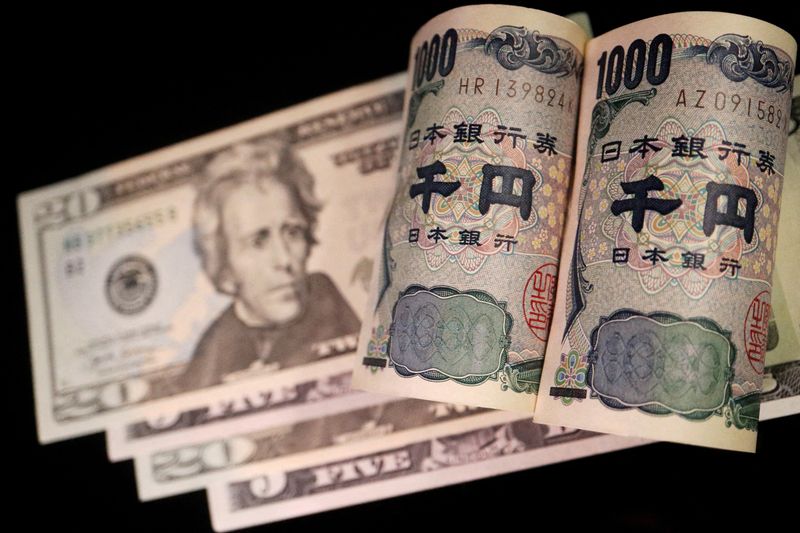
Oct 5, 2023: The yen and euro received some much needed relief on Thursday as the dollar and U.S. Treasury yields both stalled after U.S. private payrolls growth slowed sharply, leading investors to reduce bets the Federal Reserve will hike rates again this year.
After touching an 11-month high earlier this week, the dollar index (=USD), which tracks the greenback against six peers including the euro and yen, flattened at 106.75 after Wednesday’s data showed U.S. private payrolls increased far less nAQN2I71I5 than expected in September.
Although analysts said more evidence was needed to be sure how fast the labour market is cooling, money markets cut their bets for a Fed rate hike in November, and are now seeing an almost 80% chance the central bank will keep its rates steady. On Tuesday, they were pricing in a 28.2% chance of another hike, according to CME Group (NASDAQ:CME) data.
Longer dated U.S. Treasury yields eased nL1N3BA2C2 from 16-year highs, while the yen , which tends to be sensitive to U.S. yields, last traded around 149, up about 0.1% against the dollar. It hit 150.165 on Tuesday, its weakest since October 2022.
“The fact that the negative (U.S.) data made more of an impression on market participants may be due to… the fact that euro/dollar levels below $1.05 and 10-year T-note yields above 4.80% simply were quite ambitious levels, which required a considerable amount of data to support them,” said Ulrich Leuchtmann, head of FX and commodity research at Commerzbank (ETR:CBKG).
The euro (EUR=EBS) was up 0.06% at $1.0511, having falling on Tuesday to its lowest level this year at $1.0448. The single currency has dropped more than 14% against the dollar over the past three months.
INTERVENTION WATCH
The yen’s sharp recovery after breaching the 150-line sparked nL1N3B92VR speculation earlier this week that Japanese authorities may have intervened to support the currency, but Bank of Japan money market data showed nL1N3BA0PM on Wednesday that Japan most likely had not intervened.
Finance Minister Shunichi Suzuki on Wednesday declined nL4N3B92LN to comment on whether Tokyo had stepped in, and repeated that currency rates must move stably, reflecting fundamentals.
Besides the lower U.S. Treasury yields, the yen also drew support from an overnight drop in oil prices, said Kyle Rodda, markets analyst at Capital.com, though he added it was likely to be a “short-term reprieve.”
Oil prices inched back up nL1N3BB05O on Thursday after an OPEC+ panel maintained oil output cuts to keep supply tight, clawing back some of the previous session’s big losses.
The 150-level for dollar/yen “is obviously the line in the sand, and the Japanese Finance Ministry will do its best to defend it,” but any currency intervention would have very limited effect, Rodda said.
Source Courtesy: Reuters




